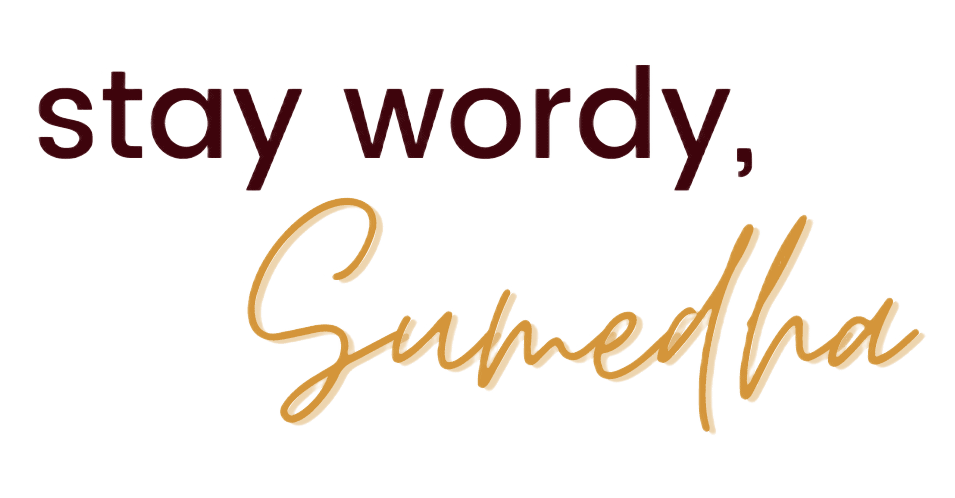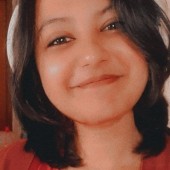Sometimes, you read a book that feels like it was written solely for you. It is as if the novel knows you better than yourself and says, "I understand you. You're not alone." It is like a warm hug and a wake-up call at the same time. It questions you and supports you.
Ace was that book for me. While I had heard good things about the book, I didn't expect it to speak to my soul.
about Ace

An engaging exploration of what it means to be asexual in a world that's obsessed with sexual attraction, and what we can all learn about desire and identity by using an ace lens to see the world
What exactly is sexual attraction and what is it like to go through the world not experiencing it? What does asexuality reveal about consent, about compromise, about the structures of society? This exceedingly accessible guide to asexuality shows that the issues that aces face—confusion around sexual activity, the intersection of sexuality and identity, navigating different needs in relationships—are conflicts that all of us need to address as we move through the world.
Through interviews, cultural criticism, and memoir, ACE invites all readers to consider big-picture issues through the lens of asexuality, because every place that sexuality touches our world, asexuality does too.
Journalist Angela Chen uses her own journey of self-discovery as an asexual person to unpretentiously educate and vulnerably connect with readers, effortlessly weaving analysis of sexuality and societally imposed norms with interviews of ace people. Among those included are the woman who had blood tests done because she was convinced that "not wanting sex" was a sign of serious illness, and the man who grew up in an evangelical household and did everything "right," only to realize after marriage that his experience of sexuality had never been the same as that of others. Also represented are disabled aces, aces of color, non-gender-conforming aces questioning whether their asexuality is a reaction against stereotypes, and aces who don't want romantic relationships asking how our society can make room for them.
Content warnings: homophobia, transphobia, acephobia, discrimination against disabled people, discussions about trauma, rape, and abuse.
my review
Within 15 pages, Ace had my whole heart. I started annotating heavily and quickly reached out to friends to talk about the book. I could not read those lines and sit silently with my thoughts. We ended up discussing the quotes so much that I stopped reading and was having in-depth conversations about asexual experiences with them.
Most people are constricted by sexual normal; aces, even more so, at times to the point of exclusion. This affords aces the ability to observe the rules of society from an outsider's vantage and with an outsider's insights.
Although Chen largely writes the book through the lens of her experiences and uses her story to drive the flow of the book, she has done enough research to talk about almost everything. She highlights others on the spectrum with a range of experiences and identities which makes the book general and specific at the same time.
Whether you identify as a part of the Asexual spectrum or not, you will relate to parts of the book and find it thought-provoking. Through the lens of asexuality, the author explores sexuality and its place in society as a whole.
She talks about how sexuality is woven into almost every part of our lives. She poses accurate and almost mind-bruising questions about how sexuality dictates our self-worth, how we live, and our hopes for the future.
To explain asexuality and what it means to not experience sexual attraction, aces must define and describe the exact phenomena we don't experience. It requires us to use the language of "lack," claiming we are legitimate in spite of being deficient, while struggling to explain exactly what it is we don't get.
It is because sexuality is prevalent in every part of life that people on the Asexual spectrum have almost the same struggles throughout the world. No matter the background, the experiences, or other identities, there are some common experiences that tie everyone together.
This is proven through the several interviews that the author has taken and quoted in the book. It is also proven because several readers—including me—relate hard to this book even though we come from different backgrounds and identify with different labels.
And that shows how much society has absorbed the rules of sexuality into every part of life. Whenever an A-spec person shares an experience, almost every other A-spec person goes "yes!" I especially felt that because I could relate on some level to every A-spec person's story mentioned in the book.
Sexuality is more than sexual orientation, and attraction is more than sexual attraction, yet humans act as though sexual interest is the only reason we find ourselves compelled by others.
The book has been structured and written brilliantly. Chen divides the different factors of sexuality (or asexuality) into different chapters and discusses each of them deeply.
She goes into how gender, race, friendship, romance, and even common misconceptions affect and are affected by sexuality. Each of these topics has an entire chapter dedicated to it. And there is actually enough to be said for all of them.
While I knew the basics of asexuality, I never truly thought about the different affecting factors and how they play out in various parts of life. This book taught me a lot because it discussed everything in understandable language.
The book drove me to share quotes and discuss the topics with friends. In fact, I learned quite a bit more through discussion alone. That is a sign of a good book—it starts worthy discussions. And because it spoke about so much, I made myself read slowly and truly absorb the words. It took me almost a month to read the book and that pace was intentional.
In the West today, sexuality is considered an essential part of identity. Sexuality is not merely what you do, it is part of who you are, part of the truth of you.
Each section and the overall book flowed really well too. Although the author mixes her experiences and stories of other people on the spectrum along with observations and questions, everything is masterfully woven together into a cohesive flow.
With a non-fiction book like Ace, it can be easy to lose track of the conversation and the point of every chapter. It is easy to add fillers and repeat points. But that did not happen here. Every paragraph was concise and intentional. There was no sentence that did not have a purpose.
The writing was so good that I annotated paragraphs at once. After a certain point, I was annotating almost every single page on my Kindle. I marvelled at how the points were put across without vagueness or repetition.
If anyone needs to make up an identity to get out of having sex, THAT is the bigger problem. It is a failure of society if anyone needs to say "I have a partner" to turn someone down, and it is a failure of society if anyone needs to invoke sexual orientation to avoid unwanted sex because saying no doesn't do the job.
I loved seeing Chen unflinchingly write statements like the above.
She questions, demands, and points out flaws without apology. Instead of going along with the generic narrative of "asexuality is something new", Chen marks asexuality as the baseline. She highlights the Ace awareness movement and specifies how the goal isn't just for A-spec people to be accepted but is true sexual romantic freedom for everyone.
People don't even have to be in the Ace spectrum to have to justify their actions according to sexual norms. There is an entire chapter that talks about compulsory sexuality (especially how it plays out for men). There is an entire chapter challenging sexuality in romance.
And there is especially a chapter that points out how sex is political.
If you don't know who you are or what you want, the world will decide for you. It will show you a couple of options and tell you those are the only ones. It takes active work to step back, to create enough space to take a breath and admit that maybe you don't know what you want, but what has been offered never felt right.
overall
I cannot possibly talk about all the reasons I love the book. My annotations are too many and the book is too powerful to be contained in one review. I can only say that I tried to summarize my opinions of the book above, and you absolutely need to read it.
I recommend it for everybody, but especially if you're A-spec or might think you're A-spec. This book is one that will make a difference.
more quotes from the book
While I included a few quotes above, there are a few more that I really want to share. And they might get you to pick up the book as well.
Casting sex as a primal, biological need often hides the fact that it is just as often motivated by emotional desire.
If sex is completely natural and biological, why does anyone need this industry of sex experts at all? Why are there sex manuals dating back centuries? Why do we need Cosmopolitan to tell us how to do it, when we far more rarely see guidebooks for how to digest and how to breathe?
Romance is so taken for granted that we often don't register it, the way we rarely register if all the characters in a novel are white.
Straightness is considered the ideal, so people rarely bother to wonder whether that's nature or nurture, even though it's both and even though straightness, as Adrienne Rich made clear, is often conditioned instead of chosen.
If asexuality, mine or anyone else's, comes up in discussion, it must always be qualified. It feels like I can't say "I'm ace" and let that stand on its own; I must always fight the impulse to tack on frenetic caveat after frenetic caveat.
I'm only asexual because there's a word for it and because people have an objection to me not wanting to have sex. If they didn't, my life would not have involved very much of talking about it.
let's chat!
Have you read Ace? What did you think about it? If not, is it on your list?
I think I've read only one other such non-fiction book that delved deeply into a topic and that was Why I'm No Longer Talking to White People About Race by Reni Eddo-Lodge. Have you read any other thought-provoking books about a specific topic? Recommend it to me in the comments!


I really think your posts are all so awesome!!!! I loved this so much, it's going to my faves of the month! ??✨??❤️
Ahh thank you so much, Sofi! ?
I keep seeing this book everywhere and I was already interested in it, but now I want to read it even more. Great review!
Thanks, Maria! Hope you enjoy it!
I love how you juts touched base and also a deep introspection in this review. You have beautifully created a must read. Thank you for the review... Will surely read!
Glad you liked my review. Hope you enjoy the book as well!
This book sounds brilliant. I really enjoy books like this which explore things which I don't know much about, especially when people are becoming more open to say they are ace or on the spectrum. It sounds it explores a lot more about sex and how society views it as well which makes it more interesting. I will definitely be adding this to my TBR.
Hope you enjoy the book!
Thank you so much for sharing this review, Sumedha. Those quotes you picked out were very powerful and relatable ❤️
Thank you, Stephen! Glad to hear you liked the review.